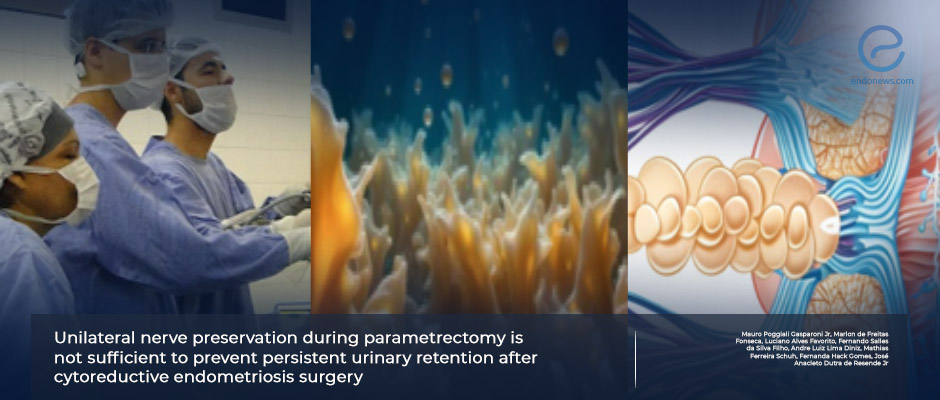Impact of Nerve Preservation During Parametrectomy on Urinary Retention in Deep Endometriosis Surgery
Jan 31, 2025
Poor parametrial nerve preservation increases the risk of post-surgical urinary retention, even with excellent contralateral preservation.
Key Points
Importance:
- Understanding the relationship between nerve preservation and urinary retention can guide surgical strategies to minimize complications.
- Optimizing nerve-sparing techniquesfor deep infiltrating endometriosis may improve post-operative recovery and patient quality of life.
- The importance of meticulous nerve-sparing techniques to prevent complications is emphasized.
Highlights:
- Nerve preservation during parametrectomy significantly impacts post-surgical urinary function in deep endometriosis patients.
- Poor nerve preservation is associated with a higher risk of urinary retention and prolonged catheterization.
What's done here:
Lay Summary
Deep infiltrating endometriosis (DIE) is the most advanced form of the disease, characterized by lesions penetrating deeper than 5 mm. Surgical treatment requires a meticulous approach to minimize functional complications. Deep lesions involving the parametrium, uterosacral ligaments, and anterior rectal wall may affect the inferior hypogastric nerve fibers, leading to a high incidence of postoperative voiding dysfunction. These fibers are anatomically located medially to the internal iliac arteries and caudally where the uterine artery crosses the ureter. Thus, preserving the nerves responsible for bladder function is a key surgical objective.
Gasparoni Jr. et al., from the Department of Urology at the Federal Hospital of Lagoa, Rio de Janeiro, Brazil, evaluated patients who underwent laparoscopic or robotic parametrectomy for DIE between 2021 and 2023. They classified parametrial nerve preservation as excellent, regular, or poor, independent of laterality, to assess its impact on voiding function.
Nerve preservation was excellent in 72.8% of cases, regular in 15.8%, and poor in 11.2%. Postoperative urinary retention requiring re-catheterization occurred predominantly in the poor preservation group.
The authors concluded that meticulous nerve-sparing techniques are essential in DIE surgery to minimize the risk of voiding dysfunction. They emphasized that "Parametrectomy with poor-nerve preservation can lead to urinary retention, even with excellent contralateral preservation." This study was recently published in Archives of Gynecology and Obstetrics.
Research Source: https://pubmed.ncbi.nlm.nih.gov/39609310/
parametrectomy unilateral nerve sparing cytoreductive surgery laparoscopy robotic surgery hypogastric plexus intermittent urethral catheterization urinary retention endometriosis.

